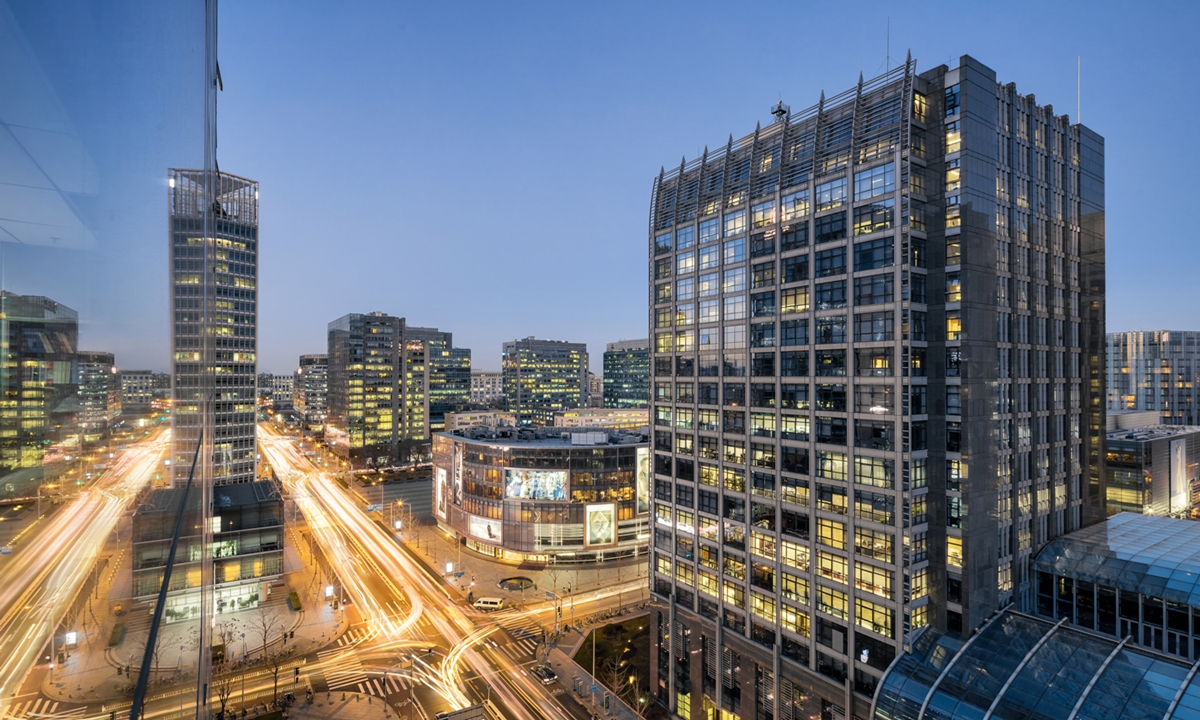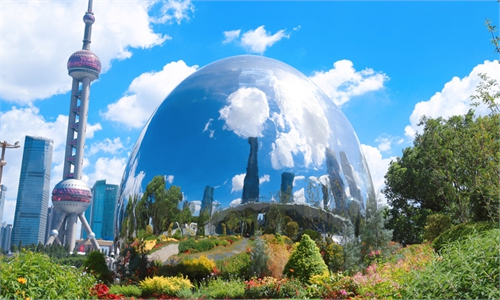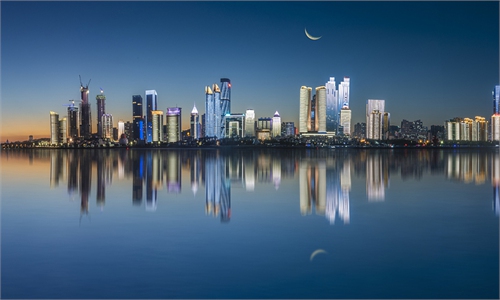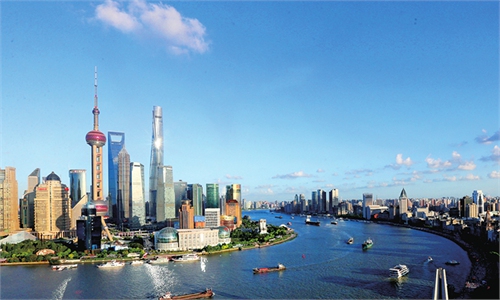Fair market, favorable policies sharpen China's edge as major global investment hub: multinationals

A financial district in Beijing File photo: VCG
A predictable environment, tax cuts, simplified procedures and even a green channel for children to go to school, among other favorable and preferential policies, are the ways that China attracts global giants and how it has remained one of the top spots for investors in recent years, multinationals from Japan, Europe and the US told the Global Times at a major summit held in Qingdao, East China's Shandong Province on Tuesday.
These factors, together with China's market potential, are strong magnets for foreign firms in China despite mounting external uncertainties in the global market, they said.
China's business environment has become fairer and more just, procedures have been gradually simplified, and communication with the government has become smoother, Ryo Honda, president of Mitsubishi Corp (Qingdao), told the Global Times.
"Chinese companies abide by the rules even more than some Japanese companies, follow the spirit of the contract, and strictly enforce the contract, which makes multinational companies feel at ease," said Honda, who has traveled to and from China and Japan about every three months since 2002, and been stationed in China since 2006.
"Over the years, I have witnessed China's step-by-step development and embarked on an extraordinary road with China", Honda said, adding that he sees a more open and confident China, and will continue to embark on an "extraordinary road together with China" in the future.
Liu Lijia, chief representative of LafargeHolcim Group in China, told the Global Times that the Swiss construction group has been offered many favorable policies in areas such as taxes, which includes the personal income tax returns of some of its executives.
Moreover, green channels are available for their children to go to school, which greatly helped them relieve their worries, Liu said.
The Qingdao summit, which ran from Sunday through Tuesday, attracted more than 5,000 participants online and on-site, including representatives from 476 Fortune 500 and other leading companies.
Themed "Multinationals and China," this year's summit focused on topics including global industrial and supply chain reconstruction in the post-pandemic era, implementation of the Regional Comprehensive Economic Partnership (RCEP) and promotion of institutional opening-up, multinationals' role in enhancing economic and social development, and the ecological protection and high-quality development of the Yellow River Basin.
Observations on China's business environment and its role as a global manufacturing hub were hot topics among industry participants especially as some are continuously hyping claims that foreign investors are fleeing China as Omicron flare-ups have dealt a blow to the financial hub of Shanghai and nearby Yangtze River Delta, also one of China's most economic dynamic areas.
"We have several plants in Shanghai and the nearby area that are affected by the coronavirus. All of those were affected in some way…but for the most part, we were able to keep pace with our customers," Christopher John Lanker, vice president and general manager for Asia of BorgWarner Emissions, Thermal and Turbo Systems, told the Global Times in an interview on the sidelines of the summit.
Lanker said that some of the firm's plants were able to run a closed-loop management system during the virus resurgence, and they were well supported by the governments in the regions where it operates.
"So we're back to normal now, although we are still seeing some slowdowns from microchip shortages that are not actually related to the coronavirus."
The US-based automotive supplier has strong footprints in China with several plants in Shanghai, Taicang and Suzhou in East China's Jiangsu Province, as well as Ningbo, East China's Zhejiang Province.
Despite the virus' impact, the firm still has confidence in the China market. "One thing that's very clear is that the China market on the EV side in the light vehicle market is definitely the largest market in the world. So, companies like us will continue to invest in and want to be a part of that market.
"We will shift more and more support to China as the market grows and continues to grow," said Lanker.
The Chinese government, while pledging to open up wider to create more opportunities over the past years, has vowed to create a better business environment for foreign firms, which helped consolidate confidence among foreign investors in investing in China.
A total of 99 key cooperation projects were signed during the Qingdao summit. The total investment of contracted projects was $15.6 billion, with contracted foreign capital worth $5.31 billion from 16 countries and regions, including South Korea, Japan, the US, the UK and Singapore. The number is a further increase from last year's 96 projects, which were worth $11.85 billion.
The big-ticket projects are mainly in the fields of high-end equipment and chemicals, new energy, new materials, information technology, finance, ocean development, agriculture and services.




